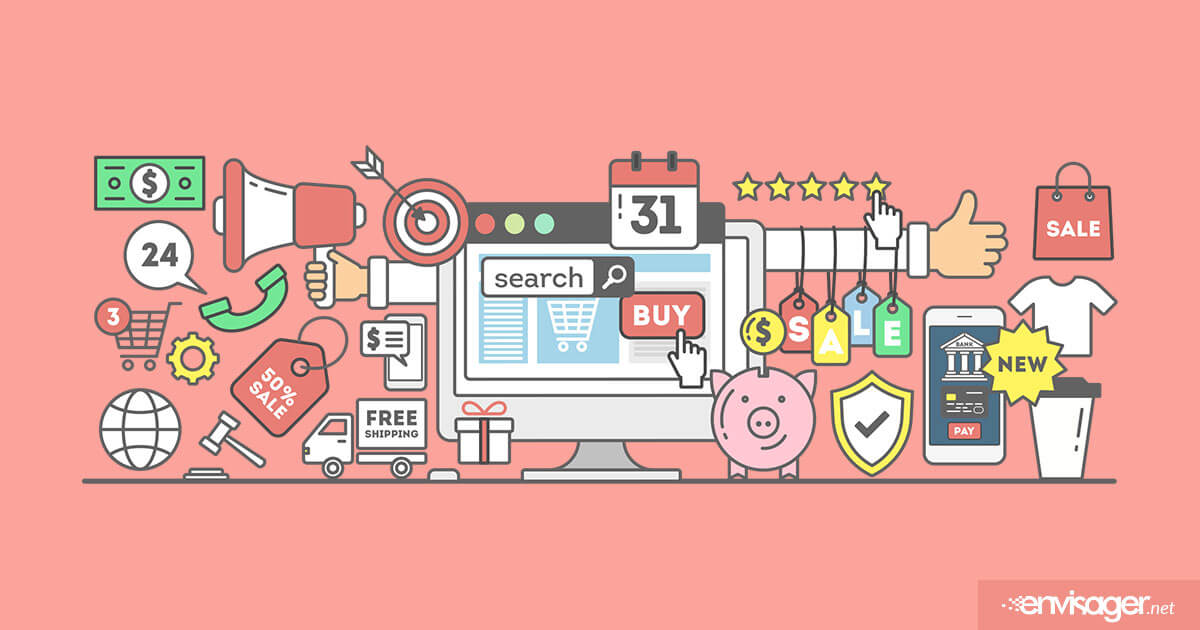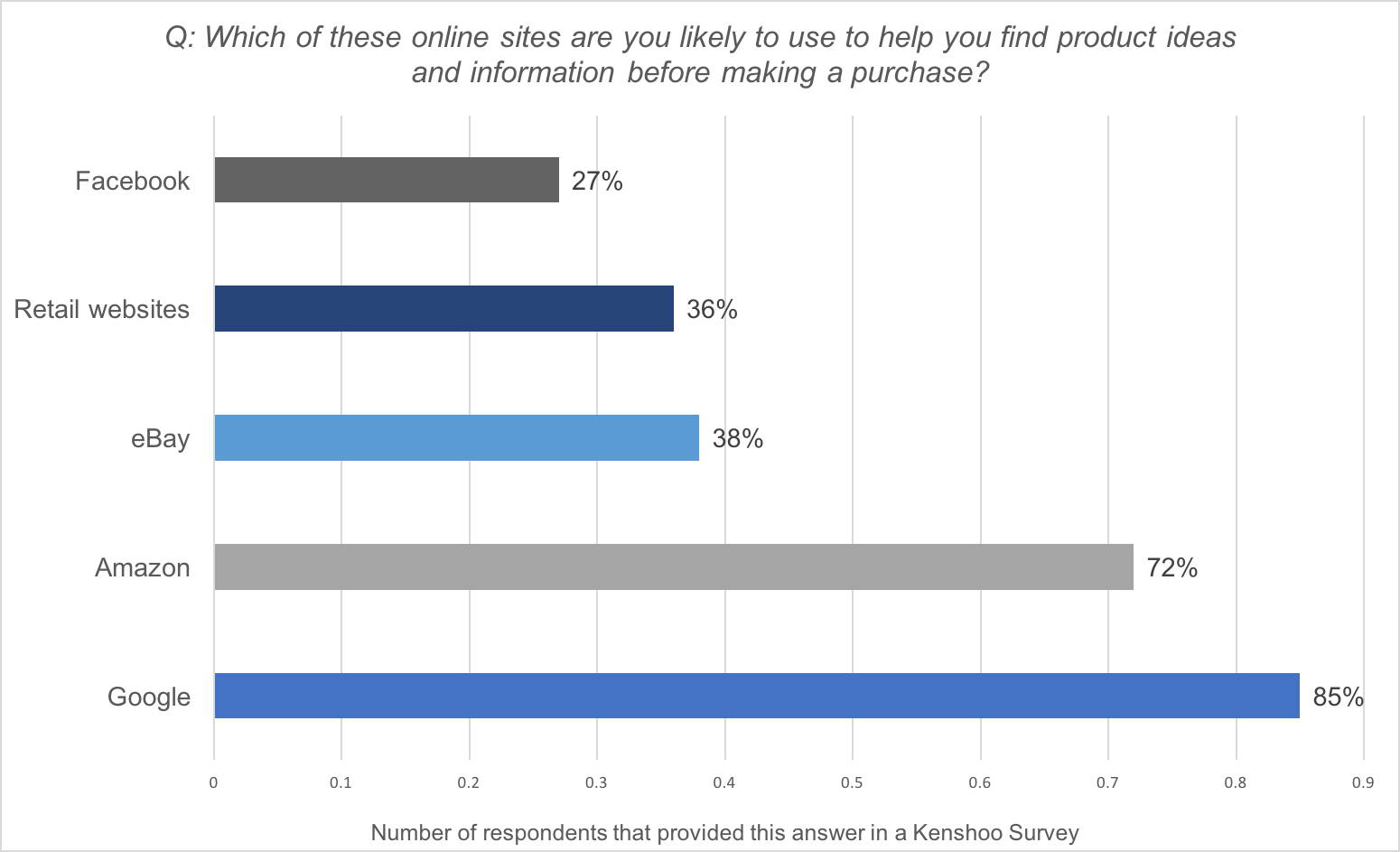Online Marketplaces: Best Platforms For Selling Products

The best platforms for selling products will allow you to expand your ecommerce business. So, online marketplaces are a must.
![]() Online ecommerce businesses have been known to increase sales by as much as 1.255%. Done simply by listing on new channels like Etsy, Amazon, and Facebook Marketplace.
Online ecommerce businesses have been known to increase sales by as much as 1.255%. Done simply by listing on new channels like Etsy, Amazon, and Facebook Marketplace.
Of course, this depends on your types of products and your brand. Other online marketplaces to consider are Newegg, and Aliexpress.
However, to be as profitable as possible on any of these platforms, you need to choose the best online marketplaces for your brand. Even the best platforms for selling products won’t help you if it’s not ideal for your types of products.
So, to make sure you’re making the right decision, you’ll need to do some upfront research. You should first understand which marketplaces is most promising for your products. And, what’s needed to ensure a smooth start. But, equally important is understanding the different strategies for selling on marketplaces.
If all this sounds overwhelming, don’t worry. We’ll highlight some of these areas and cover the need-to-know essentials.
Ready to get started? Let’s go.
What is an Online Marketplace?
An online marketplace is a site where lots of products are provided by lots of sellers. Some of the more well-known marketplaces include:
Google for Retail
Walmart Marketplace
Amazon
Etsy
Aliexpress
Alibaba.com
However, there are tons more options.
For example, there are niche online marketplaces like Bonanza where you sell things like perfume, jewelry, and sunglasses. Fashion-focused marketplaces like The RealReal and ThredUP. Bargain-focused marketplaces like Jet and Wish. And the lists goes on and on.
Yes, there are lots to choose from. But, you’re not using all of them at once. You just need to choose which channels are the best fit for your brand. And remember, unless you have enough staff to manage your products and orders, just choose three sites or so. Because, updating products and shipping orders can become overwhelming quickly.
But first, let’s go back and discuss why you should consider becoming a seller on these platforms.
Best Platforms For Selling Products: The Biggest Benefits
The popularity of ecommerce marketplaces and online sales has increased exponentially. Therefore, these channels regularly come up with new ways to keep customers happy.
That’s wonderful news if you’re selling on these sites.
This means marketplaces will try very hard to make it as easy as possible for retailers to market, sell, and fulfill. Why? Because if the platform is simple to use, it enhances shoppers’ experience. Therefore, they are more likely to keep coming back for more.
This has three appealing advantages:
1. Established programs.
The more established online marketplaces have programs in place to help you get a smooth start setting up.
For example, sellers on Google, Amazon, and eBay have access to their respective advertising and promotions plans. All these digital marketing programs are loaded with tools to help you get your products in front of the right customers.
Additionally, they also have fulfillment options you can choose from. They will pick, pack, and ship your inventory from their warehouse.
2. Enormous customer bases.
The biggest and best platforms to sell products online have huge built-in audiences of buyers who constantly shop these sites. Just imagine: between Walmart, Amazon, and eBay alone, you have access to over 500 million active monthly visitors.

But did you know that more than 50% of all product searches now begin on Amazon? Many people don’t even visit retail websites or search Google. So, if your products aren’t showing up in search results, chances are your competitors already made the sale.
3. Quick launch times.
If you’re new to ecommerce, marketplaces are good tools to help you generate revenue as you build your brand. Plus, they can drive traffic to your new ecommerce website. After you’re approved as a seller on marketplaces, you just upload your product feed and start selling.
3 Quick Start Online Marketplaces
As we mentioned earlier, it’s best to start on 1-3 marketplaces and with a handful of products.
It’s important to choose your platforms carefully. Each marketplace has its own requirements, commissions, and seller fees. Here are three to consider:
1. Facebook Marketplace.
When you’re just getting started, Facebook Marketplace is a good option. You have access to over 800 million people to sell to. Plus, Facebook Marketplace has no commissions or selling fees.
Therefore, for new sellers just getting stared, this can be a very lucrative option.
However, Facebook Marketplace is different for merchants than it is for individuals. After you sync your inventory, you have to wait a week or so for Facebook review and approval.
2. Amazon.
You can sell both new and used products on Amazon Marketplace. But, you can only sell new products on Amazon. And Amazon has a plethora of categories to sell your products in. There’s Fine Art, Health & Personal Care, Handmade, and many more categories.
A big benefit of selling on Amazon is that you get access to their over 100 million Prime members. The average consumer spends around $1,400 a year on Amazon. So, this can be a golden goose for retailers and brands alike.
The first thing you should do is carefully choose the best plan than suits your business. Amazon’s individual selling plan is probably ok for sellers who want to get started quickly. But if you have niche products, you’ll want to choose a specific category and opt for a professional plan.
Also, there are per-item selling fees, closing and referral fees, and you’ll pay $0.99 per sale. Plus, their professional plan starts at $39.99 a month.
3. Walmart.
Walmart Marketplace is invitation only. If you can get approved, you’ll have accessed to over 440 million customers. And there are also affiliate websites like Jet.com that you can take advantage of.
The best part about being on Walmart is that there are no annual or monthly fees. It’s uses commission fees only. To get started with Walmart, you’ll need to fill out an application.
Wrapping it Up
Whether you’re new to ecommerce or an ecommerce pro, online marketplaces should be a part of your marketing strategy.
Fortunately, the process is relatively painless to get started if you use the best platforms for selling products. You can launch immediately, reach inherent audiences, and take advantage of established programs. And, it will make it easier for you to market, sell, and fulfill using marketplaces.
If you need help setting up on these platforms, get in touch. We’re happy to help. In the meantime, take a look at the custom Amazon store and Etsy shop we created.

Hazel Burgess
FOUNDER/SEO DIRECTOR
Hazel is the Founder & SEO Director at Envisager Studio, a premier website design agency specializing in WordPress website design, development and internet marketing. In her spare time, she writes about search engine optimization, website design, and internet marketing.


